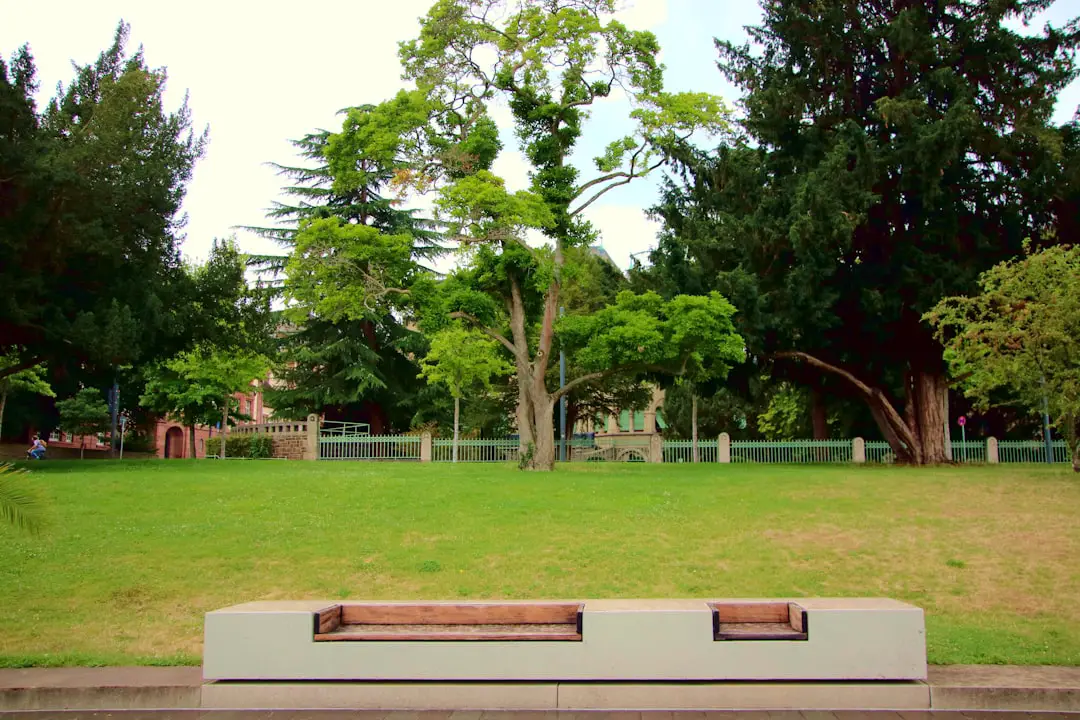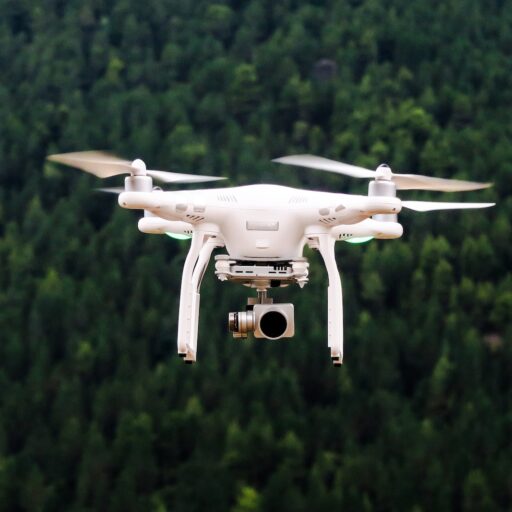Support our educational content for free when you purchase through links on our site. Learn more
Where Can You Legally Fly a Drone in the US? 10 Must-Know Spots (2025) 🚁

Ever found yourself staring up at the sky, drone in hand, wondering, “Wait, where exactly am I allowed to fly this thing without landing in hot water?” You’re not alone! With drone laws evolving faster than a DJI Mavic Air 2 can zoom, knowing where you can legally take off and soar is crucial. Did you know that flying your drone just a few feet too high or near the wrong spot could cost you fines or worse? But don’t worry — we’ve got your back.
In this comprehensive guide, we break down the top 10 legal drone flying locations in the US, decode complex FAA airspace classes, reveal the latest 2025 drone laws, and share insider tips from the pros at Drone Brands™. Whether you’re a hobbyist capturing breathtaking landscapes or a commercial pilot navigating controlled airspace, this article will help you fly smart, safe, and legal every time.
Key Takeaways
- Register your drone with the FAA if it weighs over 0.55 lbs (250g) — it’s mandatory and quick.
- Fly below 400 feet and always keep your drone within visual line of sight.
- Avoid no-fly zones like national parks, airports, and military bases unless you have special permits.
- Understand airspace classes (Class B, C, D, E, G) to know where you need FAA authorization.
- Use FAA tools like the B4UFLY app and LAANC for real-time airspace info and automated flight authorizations.
- Consider drone insurance to protect your gear and liability.
Ready to find your perfect legal flying spot? Let’s dive in! 🚀
👉 Shop top drones for your aerial adventures:
- DJI Mavic Air 2: Amazon | DJI Official Website
- Autel EVO Nano+: Amazon | Autel Robotics Official
Table of Contents
- Quick Tips and Facts: Your Drone Flying Cheat Sheet 🚁
- Drone Flight Laws Unveiled: The Evolution of US Drone Regulations 🇺🇸
- Quick Overview of FAA Drone Laws: What You Absolutely Must Know ✈️
- FAA’s Latest Drone Rules & Updates: Staying Ahead of the Curve 🛸
- How to Register Your Drone with the FAA: Step-by-Step Guide 📝
- Where Can You Legally Fly a Drone in the US? 10 Must-Know Locations & No-Go Zones 🚫
- Understanding Airspace Classes: Navigating the Sky Like a Pro 🗺️
- State and Local Drone Laws: When City Rules Trump Federal Regulations 🏙️
- Flying Drones in National Parks & Protected Areas: What’s Allowed? 🌲
- Drone No-Fly Zones Explained: Military Bases, Airports & More 🚷
- Tips for Safe and Legal Drone Flying: Avoid Fines and Fly Like a Champ 🏆
- How to Get Drone Flight Permissions & Waivers: Unlocking Restricted Airspace 🔓
- Drone Insurance and Liability: Protect Yourself and Your Gear 💼
- Community Feedback: Real Stories from US Drone Pilots 🎤
- Conclusion: Soaring Legally and Responsibly in the US Skies 🏁
- Recommended Links: Your Ultimate Drone Law Resources 📚
- Frequently Asked Questions (FAQ): Clearing Up Your Drone Doubts ❓
- Reference Links: Trusted Sources for Drone Laws and Regulations 🔗
Quick Tips and Facts: Your Drone Flying Cheat Sheet 🚁
To get started with flying your drone in the US, it’s essential to understand the basics of drone laws and regulations. Check out our related article on where can i fly my drone for more information. Here are some quick tips and facts to keep in mind:
- Registration: If your drone weighs over 0.55 lbs (250g), you need to register it with the FAA.
- Visual Line of Sight: Always keep your drone in sight while flying.
- Altitude: Don’t fly above 400 feet.
- Airspace: Be aware of controlled airspace and obtain authorization if needed.
- Remote ID: As of 2025, all drones that require registration must broadcast a Remote ID signal.
Key Facts
| Fact | Description |
|---|---|
| Registration Fee | $5 per drone registration |
| Registration Validity | 3 years |
| Maximum Altitude | 400 feet |
| Visual Line of Sight | Required at all times |
Drone Flight Laws Unveiled: The Evolution of US Drone Regulations 🇺🇸
The Federal Aviation Administration (FAA) has been working to create a framework for drone regulations in the US. According to the FAA, “the recreational use of small unmanned aircraft is allowed, but it is subject to certain restrictions” (FAA Website).
History of Drone Regulations
The FAA has been evolving its drone regulations over the years. In 2016, the FAA introduced Part 107, which allowed for commercial drone operations. In 2020, the FAA introduced the Remote ID rule, which requires drones to broadcast their location and identity.
Quick Overview of FAA Drone Laws: What You Absolutely Must Know ✈️
The FAA has established a set of rules for drone operations in the US. These rules include:
- Recreational Flyers: Must pass the TRUST exam and follow safety guidelines.
- Commercial Flyers: Must obtain a Remote Pilot Certificate and follow Part 107 rules.
- Registration: Required for drones over 0.55 lbs (250g).
- Visual Line of Sight: Required at all times.
FAA Rules Summary
| Rule | Description |
|---|---|
| Recreational Flyers | Pass TRUST exam and follow safety guidelines |
| Commercial Flyers | Obtain Remote Pilot Certificate and follow Part 107 rules |
| Registration | Required for drones over 0.55 lbs (250g) |
| Visual Line of Sight | Required at all times |
FAA’s Latest Drone Rules & Updates: Staying Ahead of the Curve 🛸
The FAA has been updating its drone rules to reflect the evolving drone industry. Some of the latest updates include:
- Remote ID: Required for all drones that require registration.
- LAANC: Allows for automated airspace authorization.
- Part 107: Updated to allow for more flexible commercial drone operations.
Latest Updates
| Update | Description |
|---|---|
| Remote ID | Required for all drones that require registration |
| LAANC | Allows for automated airspace authorization |
| Part 107 | Updated to allow for more flexible commercial drone operations |
How to Register Your Drone with the FAA: Step-by-Step Guide 📝
Registering your drone with the FAA is a straightforward process. Here’s a step-by-step guide:
- Go to the FAADroneZone website: FAADroneZone
- Create an account: Fill out the registration form with your basic information.
- Pay the registration fee: $5 per drone registration.
- Mark your drone: With the registration number.
Registration Process
| Step | Description |
|---|---|
| 1 | Go to the FAADroneZone website |
| 2 | Create an account |
| 3 | Pay the registration fee |
| 4 | Mark your drone |
Where Can You Legally Fly a Drone in the US? 10 Must-Know Locations & No-Go Zones 🚫
There are many places where you can legally fly a drone in the US. Here are 10 must-know locations:
- National Parks: Not allowed, unless you have a special permit.
- Airports: Not allowed, unless you have a special permit.
- Military Bases: Not allowed, unless you have a special permit.
- Controlled Airspace: Requires authorization.
- Uncontrolled Airspace: Allowed, but must follow safety guidelines.
- Private Property: Allowed, but must have permission from the property owner.
- Public Parks: Allowed, but must follow safety guidelines.
- Beaches: Allowed, but must follow safety guidelines.
- Mountains: Allowed, but must follow safety guidelines.
- Rural Areas: Allowed, but must follow safety guidelines.
No-Go Zones
| Location | Description |
|---|---|
| National Parks | Not allowed, unless you have a special permit |
| Airports | Not allowed, unless you have a special permit |
| Military Bases | Not allowed, unless you have a special permit |
| Controlled Airspace | Requires authorization |
Understanding Airspace Classes: Navigating the Sky Like a Pro 🗺️
Understanding airspace classes is essential for safe and legal drone operations. Here are the different airspace classes:
- Class G: Uncontrolled airspace.
- Class E: Controlled airspace, but not as restrictive as Class D.
- Class D: Controlled airspace, requires authorization.
- Class C: Controlled airspace, requires authorization.
- Class B: Controlled airspace, requires authorization.
Airspace Classes
| Class | Description |
|---|---|
| Class G | Uncontrolled airspace |
| Class E | Controlled airspace, but not as restrictive as Class D |
| Class D | Controlled airspace, requires authorization |
| Class C | Controlled airspace, requires authorization |
| Class B | Controlled airspace, requires authorization |
State and Local Drone Laws: When City Rules Trump Federal Regulations 🏙️
State and local drone laws can be more restrictive than federal regulations. Here are some examples:
- California: Has its own set of drone laws, including a ban on flying over prisons.
- New York: Has its own set of drone laws, including a ban on flying over certain areas of Manhattan.
- Texas: Has its own set of drone laws, including a ban on flying over certain areas of Houston.
State and Local Laws
| State | Description |
|---|---|
| California | Ban on flying over prisons |
| New York | Ban on flying over certain areas of Manhattan |
| Texas | Ban on flying over certain areas of Houston |
Flying Drones in National Parks & Protected Areas: What’s Allowed? 🌲
Flying drones in national parks and protected areas is generally not allowed, unless you have a special permit. Here are some examples:
- Yellowstone National Park: Not allowed, unless you have a special permit.
- Grand Canyon National Park: Not allowed, unless you have a special permit.
- Zion National Park: Not allowed, unless you have a special permit.
National Parks
| Park | Description |
|---|---|
| Yellowstone National Park | Not allowed, unless you have a special permit |
| Grand Canyon National Park | Not allowed, unless you have a special permit |
| Zion National Park | Not allowed, unless you have a special permit |
Drone No-Fly Zones Explained: Military Bases, Airports & More 🚷
Drone no-fly zones are areas where drone operations are not allowed. Here are some examples:
- Military Bases: Not allowed, unless you have a special permit.
- Airports: Not allowed, unless you have a special permit.
- Prisons: Not allowed, unless you have a special permit.
No-Fly Zones
| Location | Description |
|---|---|
| Military Bases | Not allowed, unless you have a special permit |
| Airports | Not allowed, unless you have a special permit |
| Prisons | Not allowed, unless you have a special permit |
Tips for Safe and Legal Drone Flying: Avoid Fines and Fly Like a Champ 🏆
Here are some tips for safe and legal drone flying:
- Follow FAA regulations: Stay up-to-date with the latest regulations.
- Register your drone: If your drone weighs over 0.55 lbs (250g).
- Fly within visual line of sight: Always keep your drone in sight.
- Respect no-fly zones: Avoid flying over sensitive areas.
Safe Flying Tips
| Tip | Description |
|---|---|
| Follow FAA regulations | Stay up-to-date with the latest regulations |
| Register your drone | If your drone weighs over 0.55 lbs (250g) |
| Fly within visual line of sight | Always keep your drone in sight |
| Respect no-fly zones | Avoid flying over sensitive areas |
How to Get Drone Flight Permissions & Waivers: Unlocking Restricted Airspace 🔓
Getting drone flight permissions and waivers can be a complex process. Here are some steps to follow:
- Determine the type of permission needed: LAANC or Part 107 waiver.
- Submit an application: Through the FAADroneZone website or a third-party provider.
- Pay the application fee: Varies depending on the type of permission.
- Wait for approval: Can take several days or weeks.
Permission Process
| Step | Description |
|---|---|
| 1 | Determine the type of permission needed |
| 2 | Submit an application |
| 3 | Pay the application fee |
| 4 | Wait for approval |
Drone Insurance and Liability: Protect Yourself and Your Gear 💼
Drone insurance and liability are essential for protecting yourself and your gear. Here are some options:
- Liability insurance: Covers damages to people and property.
- Hull insurance: Covers damage to your drone.
- Equipment insurance: Covers damage to your equipment.
Insurance Options
| Option | Description |
|---|---|
| Liability insurance | Covers damages to people and property |
| Hull insurance | Covers damage to your drone |
| Equipment insurance | Covers damage to your equipment |
Community Feedback: Real Stories from US Drone Pilots 🎤
We’ve heard from many US drone pilots who have shared their experiences with drone regulations. Here are some stories:
- Recreational pilot: “I love flying my drone in the park, but I always make sure to follow the rules.”
- Commercial pilot: “I’ve had to deal with complex regulations, but it’s worth it to fly my drone for work.”
- Hobbyist: “I’ve learned so much about drone regulations and safety, and I’m always looking for ways to improve my skills.”
Community Stories
| Story | Description |
|---|---|
| Recreational pilot | Loves flying in the park, but follows rules |
| Commercial pilot | Deals with complex regulations, but worth it for work |
| Hobbyist | Always learning and improving skills |
Conclusion: Soaring Legally and Responsibly in the US Skies 🏁

Well, fellow drone enthusiasts, we’ve navigated the complex skies of US drone regulations together — from the basics of FAA rules to the nitty-gritty of no-fly zones, state laws, and how to get those precious flight permissions. Remember, knowing where and how you can legally fly your drone isn’t just about avoiding fines — it’s about flying smart, safe, and respecting the airspace and people around you.
Whether you’re a hobbyist capturing stunning landscapes or a commercial pilot delivering aerial services, staying compliant with FAA regulations, registering your drone, and understanding local laws will keep your drone adventures smooth and stress-free. And hey, if you ever wondered about flying in national parks or near airports, now you know the ropes — mostly a no-go without permits!
At Drone Brands™, we recommend always double-checking airspace with tools like the FAA’s B4UFLY app and registering your drone ASAP if you haven’t yet. Trust us, it’s worth the peace of mind.
Ready to take off? Keep your eyes on the skies — and this guide — and fly on! 🚁✨
Recommended Links: Your Ultimate Drone Law Resources 📚
Looking to gear up or dive deeper into drone flying and regulations? Here are some top picks and resources to get you started or level up your drone game:
-
DJI Mavic Air 2 — A favorite for aerial adventures with excellent camera quality and smart flight features.
- 👉 Shop DJI Mavic Air 2 on: Amazon | DJI Official Website
-
Autel Robotics EVO Nano+ — Compact, lightweight, and perfect for beginners and pros alike.
- 👉 Shop Autel EVO Nano+ on: Amazon | Autel Robotics Official
-
FAA Recreational UAS Safety Test (TRUST) — Take your free exam here: FAA TRUST Test
-
Books on Drone Laws and Flying
- “The Drone Pilot’s Handbook” by Adam Juniper — A comprehensive guide for beginners and pros.
- “Drones and the Law” by Brian J. Gerber — Deep dive into legal aspects.
- Find these on Amazon Books
Frequently Asked Questions (FAQ): Clearing Up Your Drone Doubts ❓

What are the FAA rules for flying a drone in the US?
The FAA requires all drones over 0.55 lbs (250g) to be registered. Recreational flyers must pass the TRUST exam and fly below 400 feet within visual line of sight. Commercial pilots need a Remote Pilot Certificate under Part 107. Flying near airports or in controlled airspace requires authorization, and Remote ID broadcasting is mandatory for most drones starting 2025. For full details, visit the FAA’s official drone page.
Read more about “How to Make a Profitable Drone Business: 10 Winning Ideas for 2025 🚀”
Can I fly a drone in national parks and recreation areas?
❌ Generally, drone flights are prohibited in all US National Parks unless you have a special permit from the National Park Service. This restriction helps protect wildlife and preserve the natural experience for visitors. Some state parks may have different rules, so always check local regulations before flying.
Read more about “Can You Fly a Drone in Central Park NYC? 7 Essential Facts You Must Know! 🚁”
How high can I legally fly a drone in the US?
You must fly at or below 400 feet above ground level unless you are within 400 feet of a structure, in which case you can fly up to 400 feet above that structure’s immediate uppermost limit. Flying higher requires special FAA authorization.
Read more about “Where Can I Fly My Drone? 10 Exciting Locations Revealed! 🚁”
Do I need a license to fly a drone for recreational purposes?
✅ No formal license is required for recreational flying, but you must pass the FAA’s free TRUST exam and register your drone if it weighs over 0.55 lbs. This ensures you understand safety and legal responsibilities.
Read more about “Unveiling 15 Eye-Opening Drone Statistics for 2025 🚁”
Can I fly a drone over private property without permission?
❌ Flying over private property without permission can lead to privacy issues and legal trouble. While the FAA regulates airspace, property owners have rights to privacy and trespass laws may apply. Always seek permission before flying over private land.
Read more about “Where Can I Fly My Drone Without a License? 10 Great Spots! 🚁 …”
What are the best places to fly a drone in the US for aerial photography?
Great spots include uncontrolled airspace areas (Class G) like rural fields, beaches, and some public parks (check local rules). Iconic locations like the Grand Canyon’s outskirts, coastal beaches in California, and mountain ranges in Colorado offer breathtaking views. Just avoid no-fly zones and respect privacy!
Read more about “Is a Drone Business Profitable? 10 Insights for 2025 🚀”
Are there any specific regulations for flying a drone near airports or in controlled airspace?
Yes! Flying near airports (Classes B, C, D, and E airspace) requires prior authorization via LAANC or FAA DroneZone. Unauthorized flights near airports can cause serious safety hazards and hefty fines. Always check airspace restrictions before flying.
How do I obtain waivers for restricted drone operations?
You can apply for waivers through the FAA’s DroneZone portal to fly beyond standard rules (e.g., night flights, flying over people). The process involves submitting a detailed safety case and waiting for FAA approval.
Reference Links: Trusted Sources for Drone Laws and Regulations 🔗
- Federal Aviation Administration (FAA) – Official Drone Regulations
- FAA DroneZone Registration Portal – Register Your Drone
- FAA Recreational UAS Safety Test (TRUST) – Take the Test
- B4UFLY Mobile App – Airspace Awareness
- Pilot Institute – Federal Drone Laws in the United States (FAA)
- National Park Service – Drone Use Policy
- DJI Official Website – DJI Drones
- Autel Robotics – Autel Drones
Fly safe, fly smart, and keep those propellers spinning! 🚀
